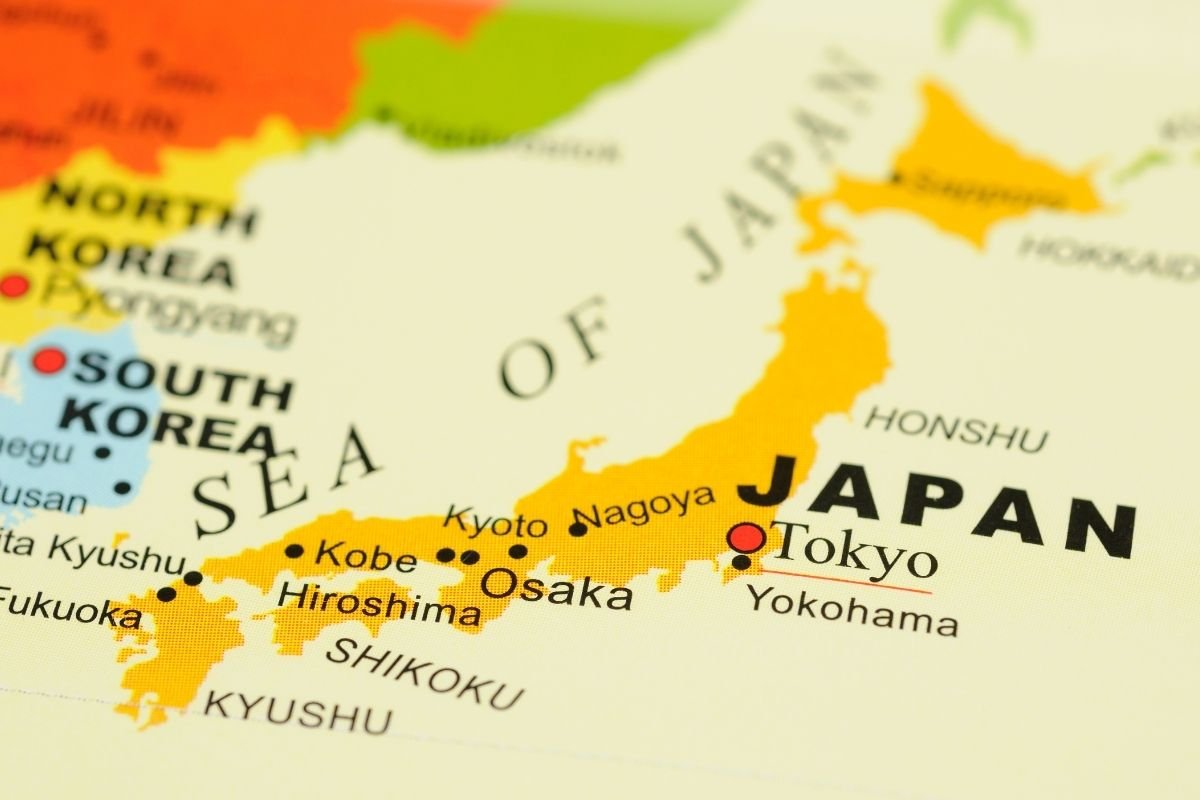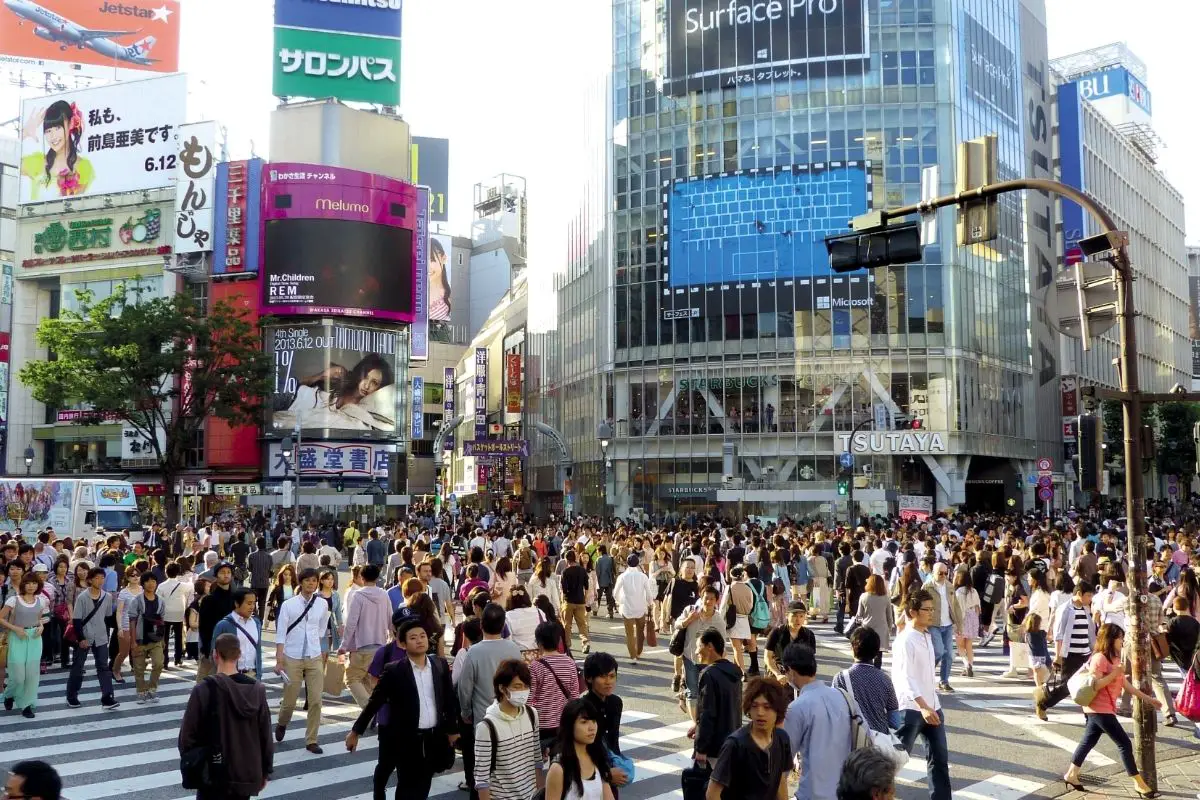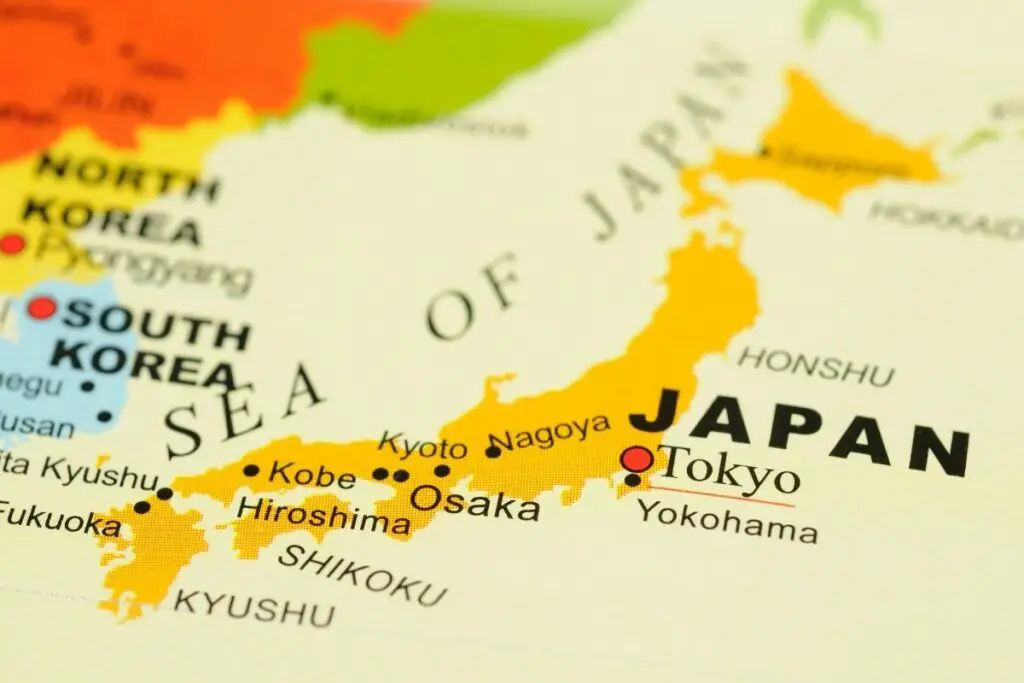Japan is a large Asian country that has considerable influence in its region and globally.
Its rich history and economic expansion have ensured that it has a seat during the meetings between the United Nations and the organization for economic cooperation and development, as well as many others.

In fact, Japan could easily be called one of the world’s great powers as its input is listened to carefully by other nations, and it can easily influence other powers actions.
Yet, for all its power and its influence, how does Japan compare to other countries? Take America, for example. America might well be the most powerful nation on earth, vying for that top spot with China.
If America is so powerful, how does Japan stack up next to it? Is it close to its power level? How about size? Is it the same size as America or smaller?
In this article, we will take a closer look at these two great countries to determine which of them is bigger, not just in size but in a lot of other categories as well. Will it be Japan, or will it be America?
Size
First, we will look at how big each country is compared to one another. However, in this category we already have a clear winner: America.
Japan has a total land area of 377,975 km2, including all the islands that are a part of it. This makes it the 62nd largest country on earth and the 4th largest island country.
On the other hand, America is considered the 3rd largest on earth if you include island territories and the 4th largest if you don’t include island territories. Taking out island territories, America is 9,525,067 km2 in total land area, about 25 times the size of Japan.
That doesn’t make Japan small, after all California is only a little bigger and if Japan (see also, ‘How Long is a Flight to Japan from California?‘) was put over the United States on a map it would stretch from Maine all the way down to South Carolina. It’s just that America’s huge.
The reasons for this are deep-seated in political, cultural, and economic events that happened throughout history, but one of the main ones is environmental.
Japan is an island country and, for island nations, there is no area that they can expand into, be it through migration or through colonial means. There is limited land, and eventually it is all taken up.
Japan, like the UK, is surrounded by rough seas as well, which meant that it was a risk to leave the islands without proper preparation, therefore for a lot of history (until the 19th century), the Japanese nation was isolated to Japan by which point other nations in the area had become well established.
However, it was different in America. For one, America is part of a large continent, which has far, far more space to expand into. Another reason is that when America came into existence it became a colonial power and expanded westward into other people’s land.
Its experience in warfare and technological progress meant it made constant progress west until it reached the pacific
So, while Japan was corralled for a lot of its history to a set of islands, America could engage in conflicts, like the Mexican American War, and take land for its own until it reached the Pacific Ocean, thus creating the sizes of each country we see today.
Population

So, Japan is not as big as America in size, but how about population? Does Japan have a bigger population? The answer to that is no, but if we are talking population density, then Japan has America beat.
Japan has a population of 125 million people, making it the 11th most populous country on earth, just beaten out by Mexico for the 10th spot by 1 million. America has a population of 333 million people, making it the 3rd most populous country on earth.
The reasons for America’s vast population are partly to do with America’s long history of constant immigration into the country primarily from Germany, Ireland, England, and Italy and partly due to explosive growth over the last couple of hundred years.
For Japan, the reasons for its large population are due to the extensive urbanization of the country in the late 1800s until the 1940s.
After the war, there was a boom in childbirths as well as the continued movement from the countryside to the city. This has meant that Japan’s population has gone from 57 million in 1920 to 125 million now.
With that in mind, we can tackle population density. Japan’s population density is far greater than the Americas, despite its smaller population. The population density in America is 37 people per Km2, but in Japan it is 347 people per Km2.
It is no wonder this is the case when you look back over their sizes. Japan is a tad smaller than California but is cramming 3 times as many people into the same area.
What makes this more shocking is that Japan is quite a green country. 68% of Japan is covered in forest, a percentage only beaten worldwide by Sweden and Finland.
This means that most of the people in Japan are crowded into cities, which have become super metropolises. A perfect example is Tokyo, which is the largest city in the world.
It has a population of 38 million people and is the size of Montenegro, but due to the amount of people in one area, it leaves more land to become forest.
Economics
Unlike the other two categories, in economics, Japan gives the US a run for its money. It is the 3rd largest national economy in the world and is only beaten out by China, at number 2, and the US, at number 1.
Many people probably expected the two top economies to be China and the US, but the fact that Japan is so close to them is astounding.
These two countries are massive, population, and resources, all of which Japan is much lower in than both. Yet, it still competes with them easily in economic terms and has done so since the 70s.
Part of the reason might be cultural, as business and trade are very important to Japan, and many companies that we see in the modern world come from the country.
It might also be the fact that when electronics were first becoming popular and wide-spread, Japanese companies threw themselves into developing them and thus created a monopoly on the market before others could.
In any case, what matters is that in terms of economics, China and America should be wary as their positions aren’t as concrete as they think.
Final Thoughts
America is much bigger than Japan in almost every aspect. However, this should not be seen as an American success, but more an underdog Japanese triumph.
It is a much smaller, much less populated, and resource barren country, yet it still manages to be in the top 10s and 20s for a lot of categories that decide your power in the world, even becoming the no 3 biggest economy.
As such, let us raise a glass to our Japanese cousins and be proud of their success in a competitive world.









